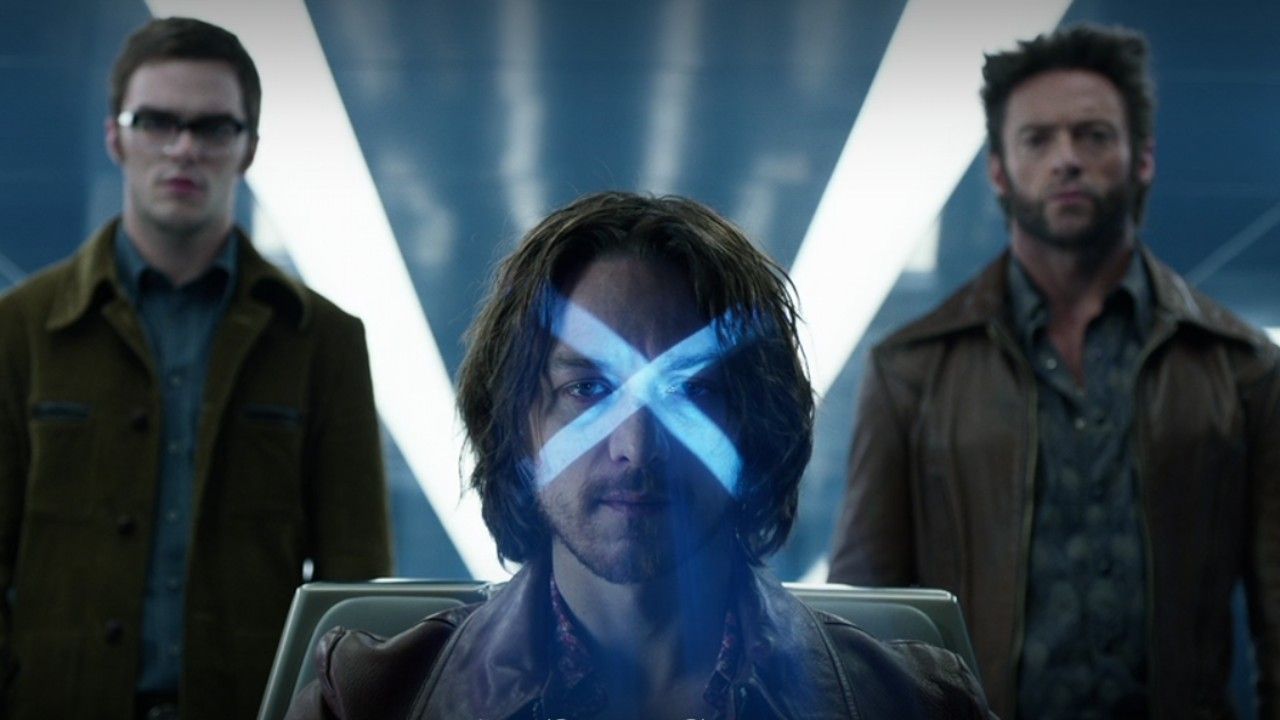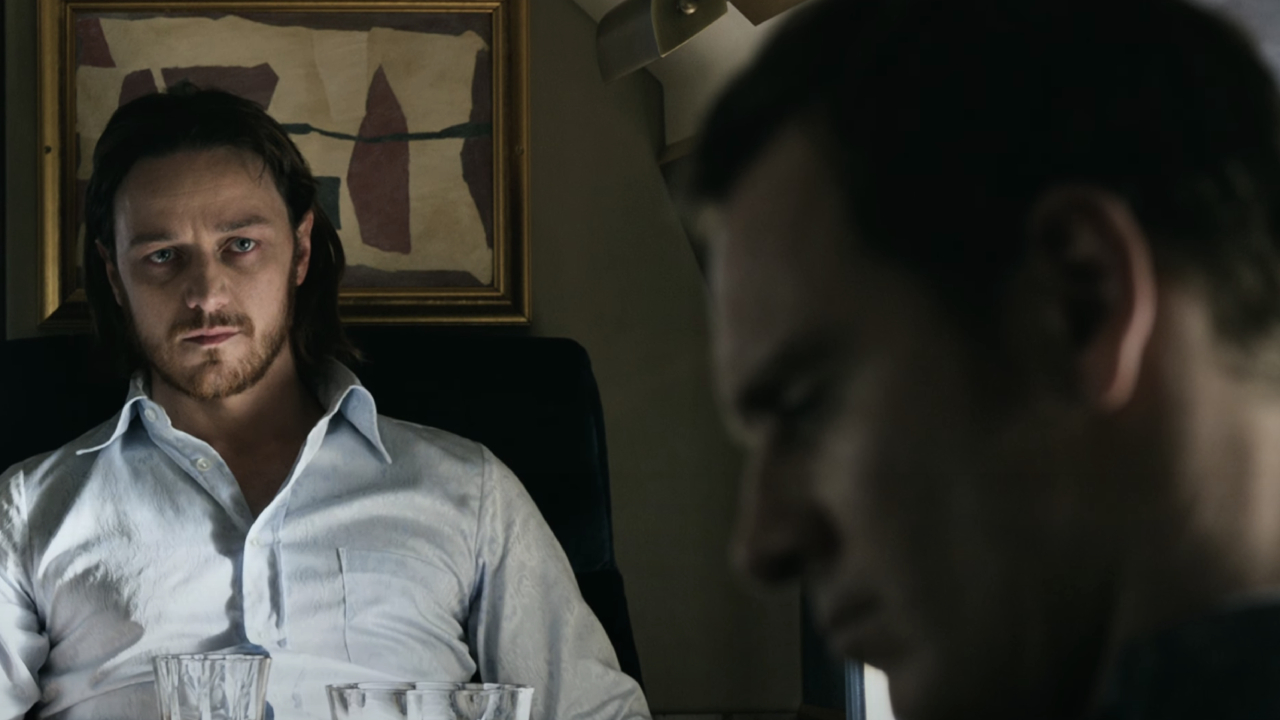
The *X-Men* film series, spanning fourteen movies, wasn’t always perfect, but it was incredibly influential. These films were pioneers for superhero movies, introducing innovative ideas and techniques. They achieved many firsts within the genre, and actor James McAvoy recently pointed out one significant way the *X-Men* films surpassed the Marvel Cinematic Universe – and he makes a strong point.
What James McAvoy Said About His X-Films
James McAvoy has love for his whole X-Men run, but when it comes to his favorite, he keeps circling back to two titles, and one bold swing those movies took before it was trendy. The British star appeared at New York Comic Con last week, and in a video (via EW’s Instagram), the actor was asked to pick his favorite Mutant-centric film.
I’m torn between *First Class* and *Days of Future Past*. I really appreciated that *First Class* took a unique approach and tried something different with its tone.
James McAvoy found it hard to pick a favorite between *First Class* and *Days of Future Past*. He noted that *Days of Future Past* introduced something new to Marvel movies, and that’s what really made it stand out. He then went on to explain his thoughts in more detail.
Days of Future Past returned to a more traditional superhero style, but it did it exceptionally well. It was one of the first films to really explore alternate timelines and universes, creating a crossover effect that felt fresh and innovative at the time. I often find myself debating which of those two films I prefer.
That makes sense. In *Days of Future Past*, McAvoy’s portrayal of a younger Xavier was compelling because he showed a character struggling between being pessimistic and hopeful—a much more complex role than the typical “wise mentor in a wheelchair.” Plus, while we’re now used to the idea of the Multiverse thanks to Marvel—even though it’s become a bit overdone lately—that film really pioneered the crossover concept in superhero movies.

How Days of Future Past Was Ahead Of Its Time
James McAvoy has a point. Long before the Marvel Cinematic Universe connected its different phases with movies like *Loki*, *Spider-Man: No Way Home*, and *Doctor Strange in the Multiverse of Madness*, the 2014 film *Days of Future Past* was already mixing timelines and characters in a similar way – it was doing it before it became a popular trend. Here’s how it paved the way:
- A true generational crossover. Bringing the X-Men OGs (Patrick Stewart, Ian McKellen, Halle Berry, et al.) into a story shared with the First Class cohort (McAvoy, Michael Fassbender, Jennifer Lawrence, Nicholas Hoult) gave the film a legitimacy and emotional continuity that modern cameos often chase but rarely earn.
- Timeline mechanics with stakes. The dystopian future framed every decision in the past, and the movie communicated those causal ripples cleanly. When comic-book films later embraced branching realities, DOFP had already road-tested how to do it without turning character arcs into math homework.
- Character first, spectacle second. The Quicksilver showcase still rips, the Sentinels still menace, but the spine of the movie is Charles and Erik. That emphasis is what keeps the timeline gymnastics from feeling like gimmickry.
- Soft reboot by design. The film’s endgame quietly re-threads continuity, resetting fates without erasing emotional history.
- Tonally balanced. First Class reintroduced the brand with a swinging-’60s vibe and a youthful edge; DOFP married that freshness to the operatic fatalism of the original trilogy. The result felt both “classic” and new, precisely the duality McAvoy points out.
Modern Marvel films often seem to use the multiverse just for quick appearances and fan service. However, *Days of Future Past* explored these complex ideas with the careful storytelling they needed.
If you’re planning a Marvel movie marathon on Disney+, pay attention to how the timelines split and characters from different eras meet. The *X-Men* movies actually explored personal connections within time travel before the MCU did, focusing on the characters first and the spectacle second, and that’s something Marvel could learn from again.
Read More
- ‘And Then The Chesty One Comes In.’ SNL’s Cut For Time Sketch Hilariously Reimagined Sydney Sweeney And Zendaya’s Euphoria
- Five Nights At Freddy’s 2 Review: The Video Game Movie Sequel Limbos Under The Low Bar Set By The First Film
- Belissa Escobedo, on Happy’s Place
- Netflix’s #1 Trending Comedy Proves Critics Are Wrong About This $523 Million Franchise
- 2025 Officially Marked The Start Of An Era For Spider-Man
- Elle Fanning’s Upcoming Apple TV Comedy Continues A Wildly Impressive Streaming Trend
- Pokémon Legends Johto Leak Leaves Gamers Torn
- Прогноз нефти
- One Piece: Egghead Arc Episode 1140 Release Date, Time, Where to Watch
- Nintendo Releases First Official Zelda Movie Photos, Revealing Link and Zelda in Costume
2025-10-13 20:31